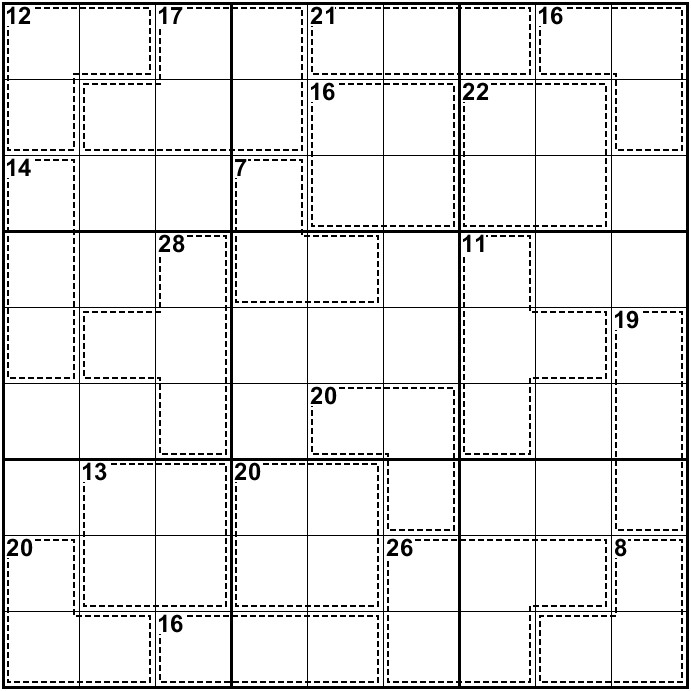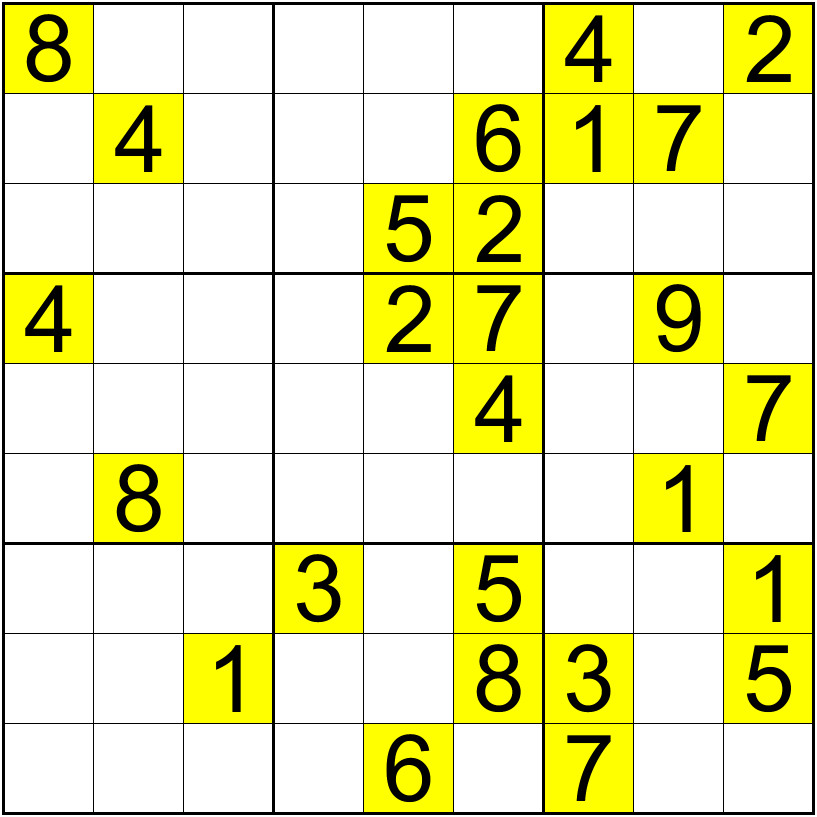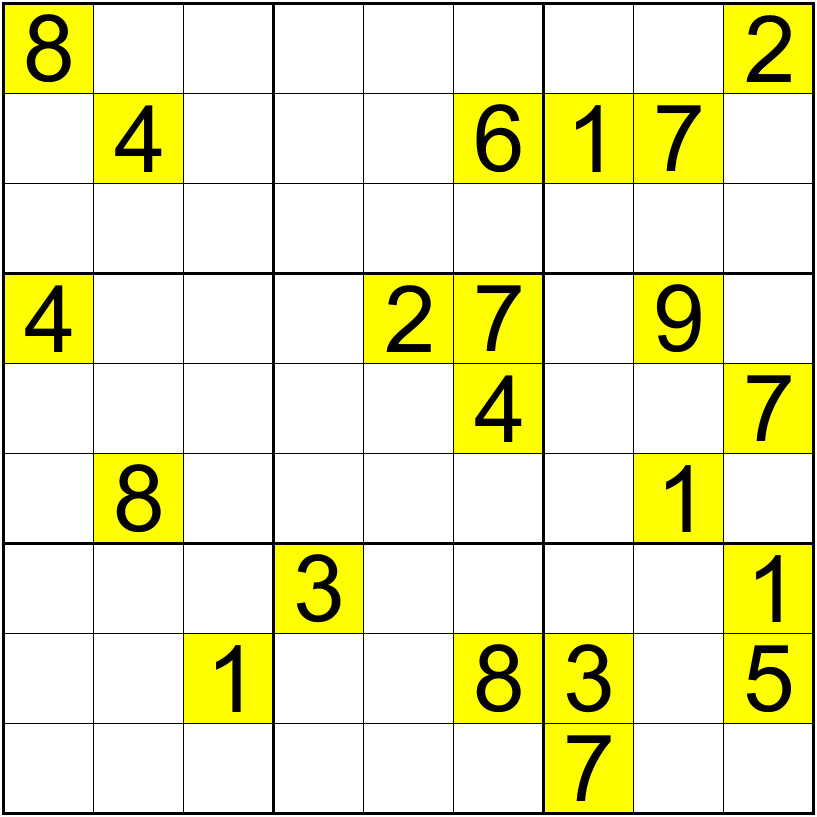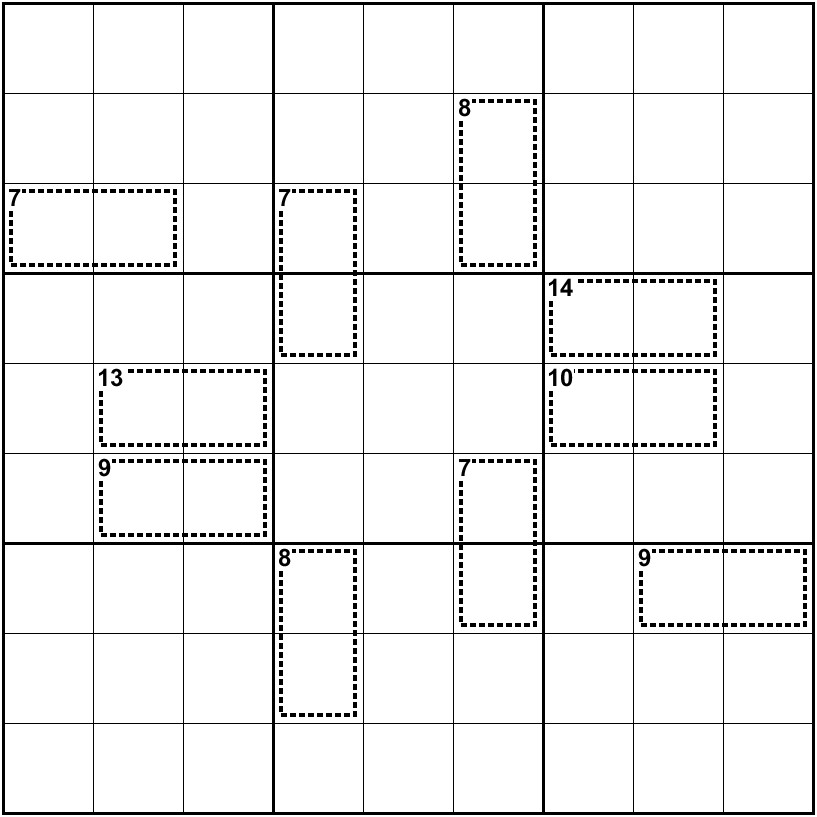HATMAN wrote:With your table is that just the variants from your original solution or are you saying more?
That table contains all the variants of my original solution that are still valid NC, indicating which digits I interchanged.
Those are only half of them, because if a grid (N) 1-2-3-4-5-6-7-8-9 is a valid NC, the grid (10-N) 9-8-7-6-5-4-3-2-1 still has that property, so I didn't include those.
----
We could understand a semi-symmetrical grid as a grid that has both symmetric pairs (including the digit paired with itself) and semi-symmetric pairs.
Based on that, I found there are 2 types of semi-symmetric pairs.
-
Disconnected blocks from a symmetric pair (DSP)
The 79s in my last puzzle is an example of that.
If you try this puzzle you will notice it has 4 valid solutions, 2 of them are symmetrical, and the other 2 are semi-symmetrical.
.2584.163.48361.2516352..4881629357457461839239247581663..5248125.18463.481.3625.
-
Connected blocks in a specific 'semi-symmetric' pair (CSSP)
In this case you can't get a symmetrical puzzle, the distribution is specifically semi-symmetrical.
The 45s in
Semi-symmetric Vanilla 2 & 2H would be an example of that.
896173..2..2986173137452968.13827.9662951483778.63921.9783456212617983..3..261789
We can do the inverse step and get new valid semi-symmetrical solutions from both symmetrical and semi-symmetrical grids, if some of their pairs has disconnected blocks.
I just did that with some of the examples we've already seen to get some valid semi-symmetrical grids:
- Code: Select all
654172938912683475783945162495216783168357249327498516849561327536724891271839654 123 Roulette {37-DSP}
123978645654312897789564231465123978897456312231789564978645123312897456546231789 Riddle of Sho {46-DSP}
183972645456318297729564831645183972297456318831729564978645123312897456564231789 Riddle of Sho {28-DSP}
435981276712634895968752431849267513376145982251893647524318769197426358683579124 m_b_metcalf (First) {69-DSP}
725849163948361725163527948816293574574618392392475816639752481257184639481936257 Wecoc NC #1(') {79-DSP}
And yes, in this case Wecoc NC #1(') is still a valid NC grid.
Some other examples of semi-symmetrical grids I found while trying this in JSudoku:
- Code: Select all
265748931347291685981536274756324819423819756819657423632475198594182367178963542 Wecoc Vanilla #1 {25-DSP}
483172956729658314561943872378426591295317648146589237832794165917865423654231789 Wecoc Vanilla #2 {28-DSP}
487635129125489637639127485251368974974251368368974251593712846746893512812546793 Wecoc Vanilla #3 {67-CSSP}





